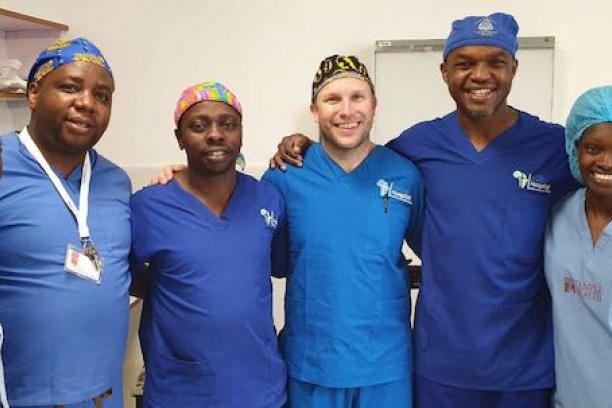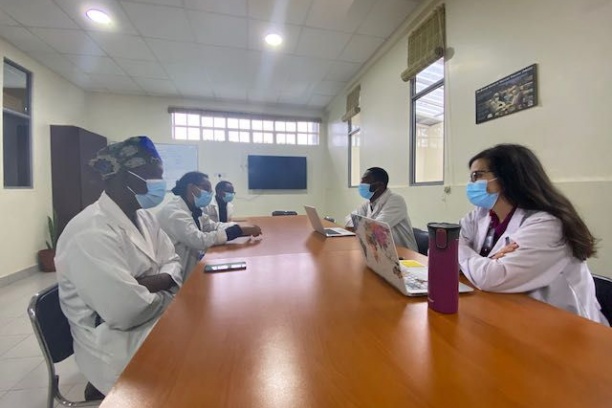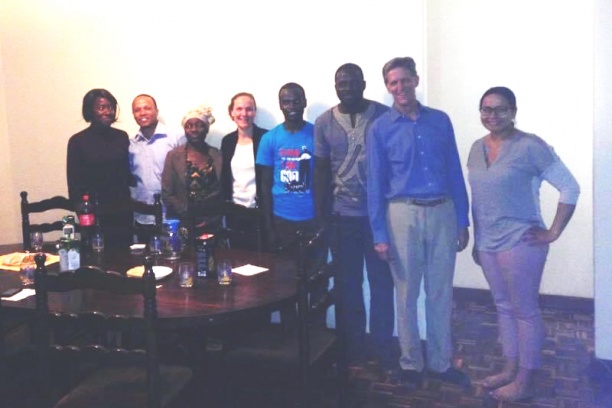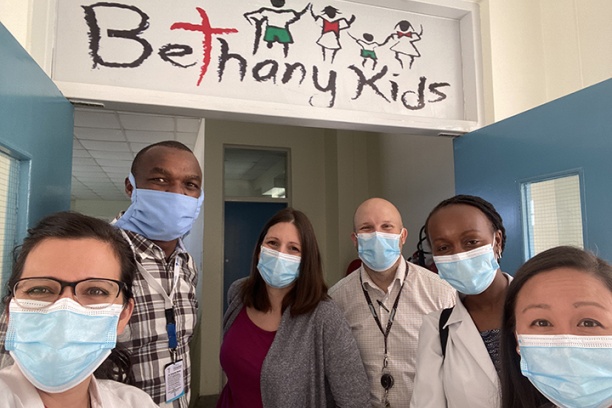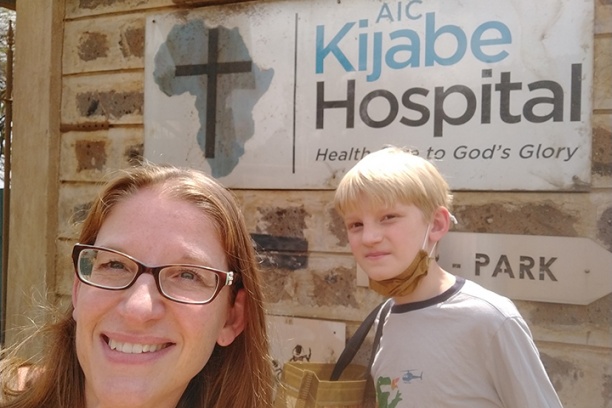AIC Kijabe Hospital
Frist Global Health Leaders Program
AIC Kijabe Hospital, located in Kijabe, Kenya, one hour outside Nairobi, is a tertiary-care facility with training programs in nursing, anesthesia, surgery (general, pediatrics, and pediatric neurosurgery), family medicine, and other areas of health care. The goals of this international rotation are:
- To gain a perspective on global surgery as a vital aspect of public health and its role in attaining the Millennium Development Goals, particularly goals 3, 4, and 5*
- To acquire experiential knowledge about the provision of surgical care in a low-income environment and demonstrate a logical and appropriate clinical approach to the care of patients, utilizing local resources.
- To recognize that lessons learned during the 4-week rotation can be integrated into practice when the resident returns to the US; Specific objectives are competency-based.
For more information on Kijabe Hospital in Kenya, see 10-minute informational video here.
Patient Care:
This is a general surgery rotation that offers a cross-cultural experience in caring for a population that tends to be younger than US health populations, presentation may be later, and many are indigent. Knowledge base should include the essentials of both inpatient and outpatient diagnosis and work up of all major general surgery problems in its broadest sense. The general surgical principles should include the evaluation and treatment of patients in all the areas of general surgery with an emphasis on trauma; late presentation of other surgical problems is common. The PGY-4 is requested to take advantage of opportunities to learn from the ob-gyn, anesthesia, orthopedic, neurosurgery, and other surgical services as well as community health and primary care.
Medical Knowledge and Technical Skills:
Knowledge should include the ability to work through diagnostic and therapeutic pathways in a resource-challenged system. The PGY-4 should observe and, when appropriate or if invited, participate in discussions about various operative and non-operative options and techniques in the treatment of the general surgical patient. Experiences with specialty surgery, ob-gyn, and primary care patients are essential components of the rotation as they provide maternal and child health aspects of care. The PGY-4 should learn about controversy and the risks and benefits of operative vs. non-operative treatment for the various disorders encountered. There should be an extensive knowledge of surgical exposure of all general surgical systems open as well as MIS.
A primary goal of AICKH is the training of Kenyan surgeons; therefore the Vanderbilt PGY-4 residents will be observers, assistants, and teachers unless the Kenyan residents are not available for operative procedures. The skills required by a PGY-4 include experience with general surgical systems and the understanding of intraoperative decision-making. Each resident will have clinic experiences to ensure an understanding of the issues of continuity of care for patients who may have financial and logistical issues related to follow-up including limited personal resources, transportation difficulties, and residing long distances from the hospital.
Professionalism:
Culturally sensitive care and support should be provided to the patients and families with respect shown to all the hospital staff. The PGY-4 will be an observer-learner and will participate by invitation in the clinical and educational activities. The PGY-4 should motivate and teach the junior house officers by example and interaction, attend all conferences, and be willing to teach or present if asked. The PGY-4 is a guest of the AIC Kijabe Hospital surgical service and is expected to abide by all codes of dress and conduct.
Interpersonal and Communication Skills:
A constant attitude of respect for every staff member and patient and patient family member is imperative. Developing rapport and gaining the confidence of the faculty, staff, and resident-colleagues as well as the patient and family members is vital and accomplishing these through the barriers of language and culture may be challenging but is possible. All communication and interpersonal relations should be guided by principles of cultural sensitivity and appropriateness. Understanding that communications in any cross-cultural situation may require a thoughtful approach, the resident is expected to make every effort to speak clearly and ask follow-up questions to be certain communications is taking place. The English spoken in Kenya will have pronunciation differences from American English and the resident should keep this in mind in every communications encounter with staff or even with patients via translators.
Practice-based Learning and Improvement:
Self-reflection is a vital aspect of this rotation as the residentworks in an environment very different from the medical environment of a US academic medical center. The resident is required to keep a journal to record impressions, observations, and lessons learned from this experience. The resident is encouraged to appreciate, learn from, and hopefully incorporate some of the interpersonal and medical practices observed in the AIC Kijabe Hospital into the residents relationships and practice on the return to the US.
Performing clinical diagnosis in settings where diagnostic studies are limited will be challenging. Physical examination skills should be honed and improved.
Systems-based Practice:
- Acquires knowledge about the relationship of the tertiary-care facility in a low-income country torural clinics and district hospitals--a vital aspect of this rotation.
- Observes how a faith-based institution works cooperatively with the governmental system as well as with nongovernmental agencies such as PEPFAR.
- Appreciates the issues raised by resource-challenged management of surgical problems in the out-patient and in-patient setting in a tertiary-care facility that may be many hours or even days distant from the patients home or support system.
- Learns how the most accessible facility in a low-income country is asked to handle every type of medical disease or emergency regardless of its capabilities or resources and the challenges of referral.
Patient Care, Technical and Communications Skills Milestones:
- Consistently practices respectful and culturally-appropriate communication and interpersonal relationships with patients, families, colleagues and hospital staff
- Participates in a broad range of medical care including anesthesia, ob-gyn, surgical specialties, etc.
- Presents effectively at teaching conferences
- Is able to participate in clinical decisions in the outpatient sector when requested or when appropriate
- Demonstrates critical care and inpatient management skills when requested or when appropriate
- Performs level-appropriate operations with supervision if no Kenyan trainee is available.
Evaluation:
Supervising faculty will evaluate the performance of each resident using these goals and objectives as the foundation through the New Innovations system within the Vanderbilt IT structure. In turn, each resident will evaluate the rotation and supervising faculty through New Innovations.
Millennium Development Goals
Goal 1: Eradicate extreme poverty and hunger
Goal 2: Achieve universal primary education
Goal 3: Promote gender equality and empower women
Goal 4: Reduce child mortality
Goal 5: Improve maternal health
Goal 6: Combat HIV/AIDS, malaria and other diseases
Goal 7: Develop a Global Partnership for Development
